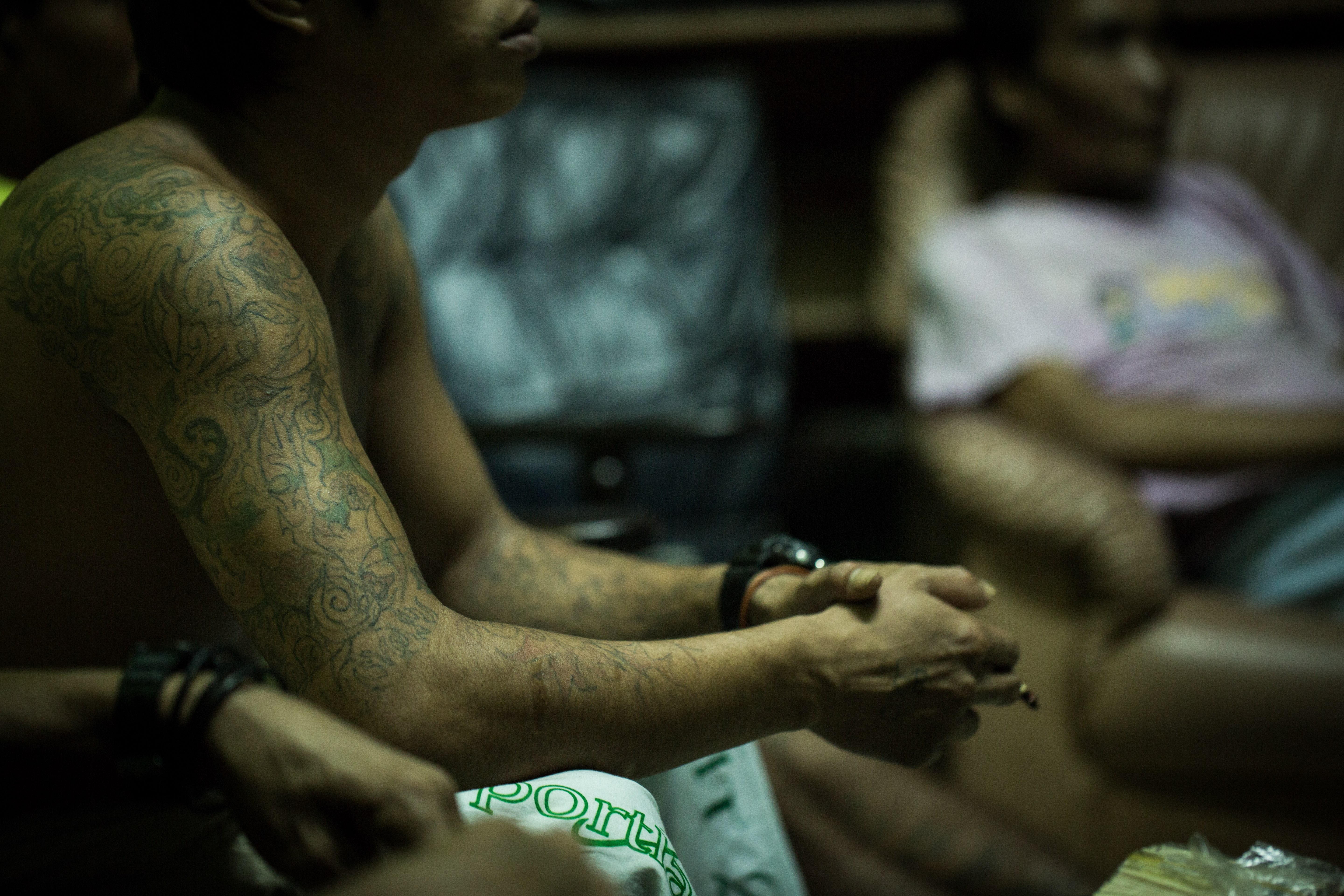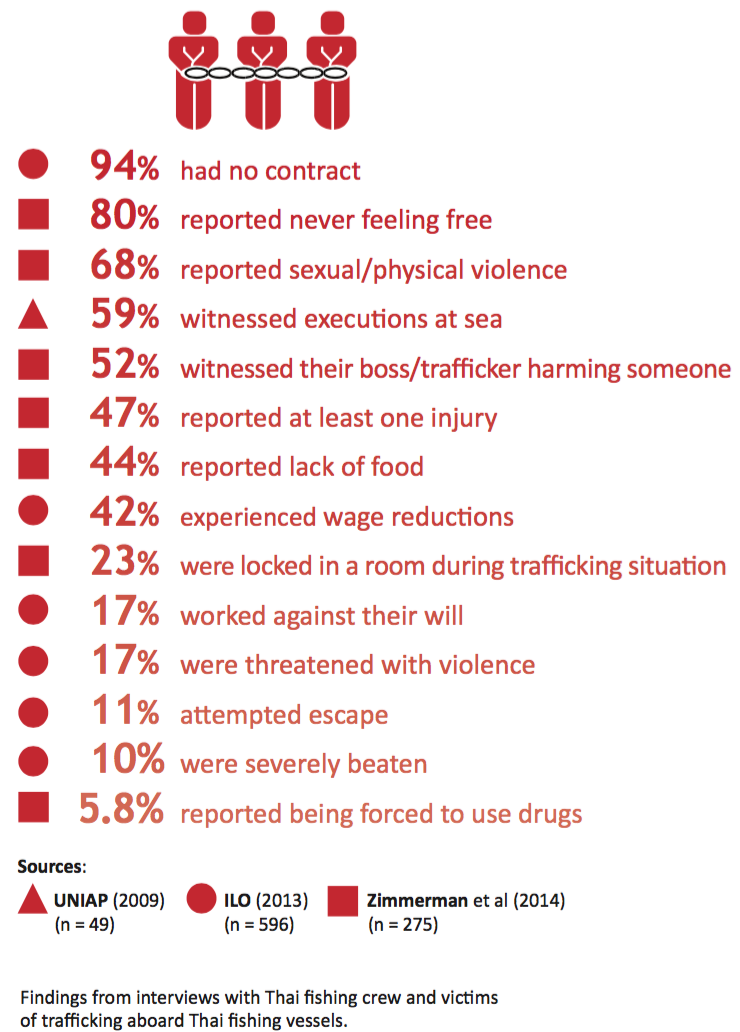Slavery, 'pirate' fishing and other serious crimes continue to plague Thailand's seafood sector highlighting the shortcomings in private sector initiatives and government controls.
Seafood and slavery
Human trafficking and slavery are global problems. It is estimated that as many as 35.8 million men, women and children are currently victims of human trafficking around the world.
Thailand is the 30th largest economy in the world with a GDP of US$404 billion. The Thai seafood industry employs more than 800,000 people, while seafood exports are valued at $6 billion.
A growing number of independent reports over the past decade have documented abuses of workers tracked on to Thai fishing vessels, including bonded, forced and slave labour and the use of extreme violence. One report by the United Nations Inter-Agency Project on Human Trafficking (UNIAP) found that 59% of trafficked migrants interviewed aboard Thai fishing vessels reported witnessing the murder of a fellow worker.
They would torture and murder the fishers then throw them into the sea. They abused the crew in many ways – beating, hitting and killing out on the ocean. I witnessed murder with my own eyes.
Tun Thet Soe, escaped victim of trafficking
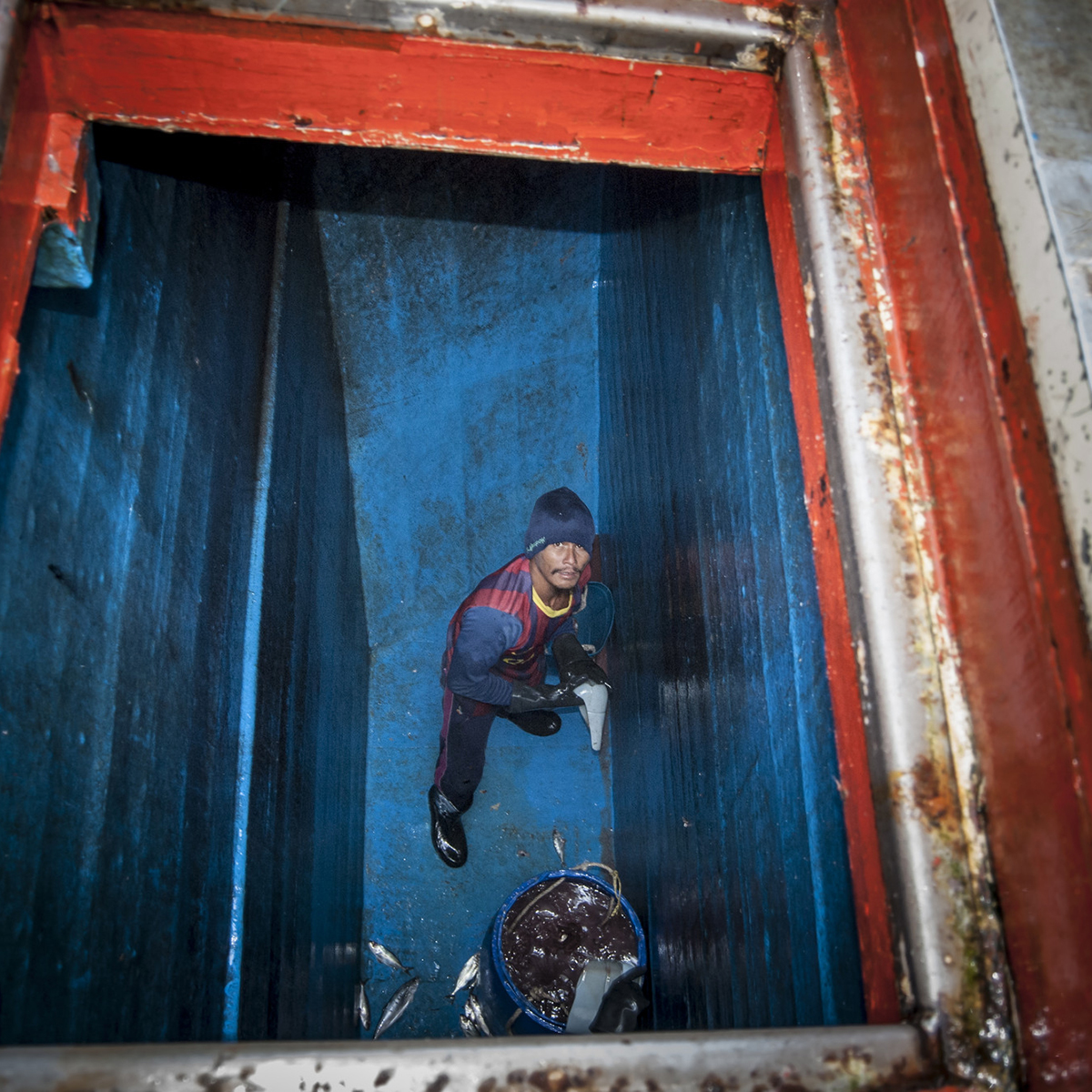
Fisheries in crisis
Thailand's fish stocks and marine biodiversity are in crisis. The Thai fishing industry has undergone decades of overfishing and astonishingly poor fisheries management. Rapid industrialisation during the 20th Century has resulted in too many vessels using destructive and unsustainable fishing methods to catch too many fish. The overall catch per unit effort (CPUE) in both the Gulf of Thailand and the Andaman Sea has plummeted by more than 86% since 1966, making Thai waters among the most over-fished regions on the planet.
The pressure on Thailand's over-exploited fish stocks has been and continues to be due in large part to the demand for animal feeds and farmed shrimp. The fishmeal industry has masked the true economic and ecological costs of overfishing by over-valuing the trash fish which constitutes one of its key raw materials.
The lack of an adequate fisheries management regime and effective enforcement along with extensive corruption have facilitated overfishing in Thailand, which has generated economic pressures that fuel the ongoing, widespread use of slave labour.
Some Thai officials are complicit in trafficking crimes and corruption continues to undermine anti-trafficking efforts.
US State Department Trafficking in Persons (TIP) report, 2015
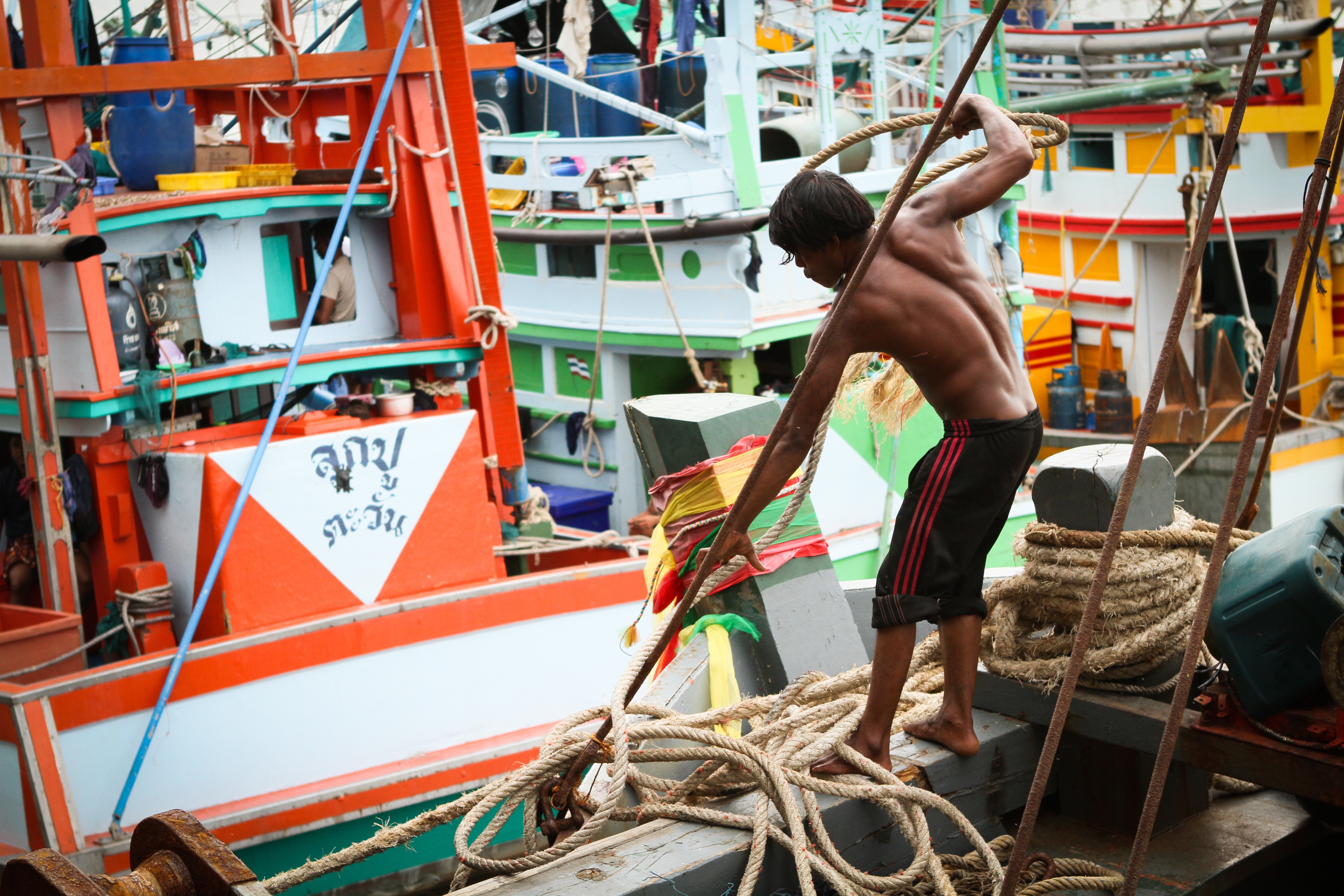
AT RISK
Over 90% of workers on Thai fishing boats are migrants
Illegal fishing and slave labour
Exhausted fish stocks mean that vessels are staying at sea longer and going further afield, often fishing illegally in other nations’ territorial waters, to bring in diminishing catches. In turn operators are using human trafficking networks and bonded, forced and slave labour to crew their vessels and depress costs. This largely export-focused industry is able to carry on providing cheap products to western markets as a direct result of these human rights abuses. Consumers in the West are eating products contaminated with slavery, 'pirate' fishing, corruption and criminality.
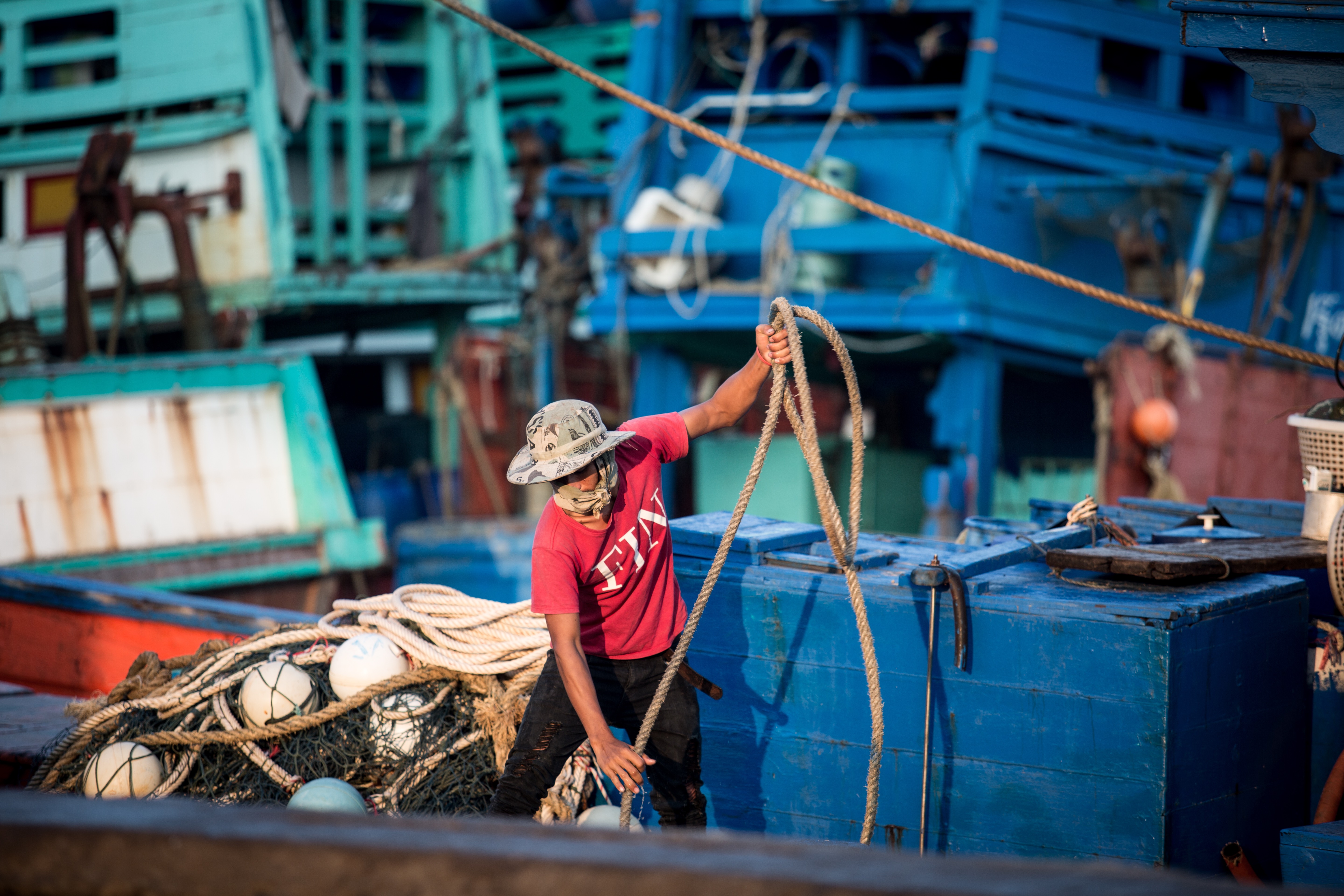
I want to tell [consumers] about our troubles. We sacrificed our blood, sweat and energy. I really would like to let them know about our nightmares.
Yu Win, escaped victim of trafficking
EJF undercover
This report builds on over three years of in-depth research and field investigations to first expose abuse and then critically assess claims that slavery and 'pirate' fishing in Thailand’s export-oriented seafood sector have been significantly reduced. By returning to Kantang, this report presents evidence that is broadly representative of trends across the country – namely the Government’s ongoing failure to address corruption, and prosecute and convict those engaging in and benefiting from criminal activity. EJF recommends that this report is read in conjunction with its previous three publications about the Thai seafood sector: Pirates and Slaves, Slavery at Sea and Sold to the Sea.
The Thai seafood industry is today globally notorious for being one of the most abusive and destructive economic sectors in the world.
In 2015, Thailand remained on the US Government's 'Tier 3' – the lowest possible tier – in its annual Trafficking in Persons Report, in part due to abuses in the seafood industry. This year, the European Commission also used its powers under an EU Regulation on to 'yellow-card' Thailand for its ongoing failures to curb Illegal, Unreported and Unregulated fishing (IUU).
Whenever I came back to port they told me I owed them 20,000 or 30,000 baht [$558 or $837]. I couldn't ask why, they would beat me - any one of them would've killed me, so I didn't ask. I've seen beatings and killings before so I didn't dare ask.
Mao Thant Kyaw, escaped victim of trafficking
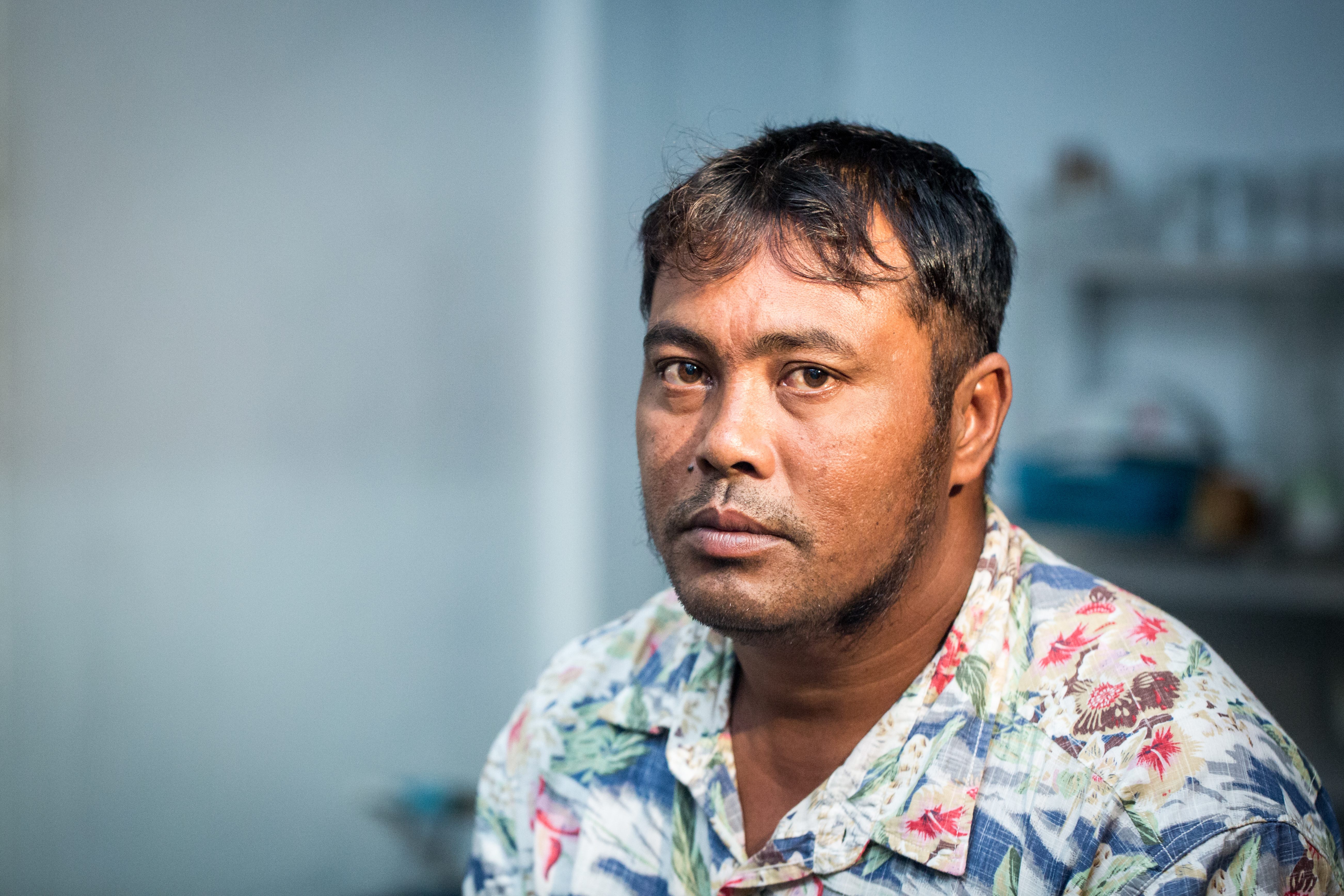
Kantang's fishing industry
Two and a half years ago, one of Thailand’s most high profile trafficking cases generated international attention around the plight of the men forced to fish in a brutal seafood industry. EJF’s most recent investigation in the port of Kantang has uncovered multiple abusive fishing companies in a town where corrupt officials continue to operate with impunity, trafficking networks remain unbroken and men are still forced to fish aboard Kantang boats – trapped in an endless cycle of debt, exploitation and abuse.
Testimony from recent escapees reveals how fleets of Kantang fishing vessels routinely plunder the waters of Malaysia and Indonesia, using carrier vessels to land fish caught through forced labour and illegal fishing at piers and factories along the Trang River. A large proportion of the catch is 'trash fish' – small species, juvenile and putrefied fish unfit for human consumption. The trash fish is destined for processing in local fishmeal plants and EJF investigations have linked feed inputs from these plants to the supply chains of multiple major companies producing seafood for the international market.

The actions taken by producers and global retailers of Thai seafood – following a spate of high profile media exposés – are currently failing to prevent the ongoing human rights abuses and illegal fishing; nor are they halting the flow of tainted products into international supply chains.
Further action is still needed.
It is vital that the Thai Government meets its obligations to effectively enforce its own laws across the industry nationally. Without such action, any initiatives by corporate interests are likely to be critically undermined. To date, while multiple new measures have been introduced by the Government, they have still failed to initiate the essential nationwide programme of intelligence-led enforcement to crackdown on human rights abuses and illegal fishing and with this successful prosecutions with meaningful deterrent penalties.
In 2015, Thailand’s military Government introduced new regulations and controls on the country’s fishing fleets. However, evidence from southern Thai ports indicates serious shortcomings in the implementation of Government policy.In particular, recent EJF investigations demonstrate that the new Port in - Port out (PIPO) system is not working to identify or assist victims of trafficking, forced and bonded labour, as the Government has claimed.
Worryingly, the registration of thousands of migrant fishers by 112 mobile registration units seems to have regularised victims of exploitation and abuse – with EJF’s investigations indicating that some officials are assuming that fishers in possession of formal identification do not need to be screened for indicators of trafficking, forced or bonded labour.
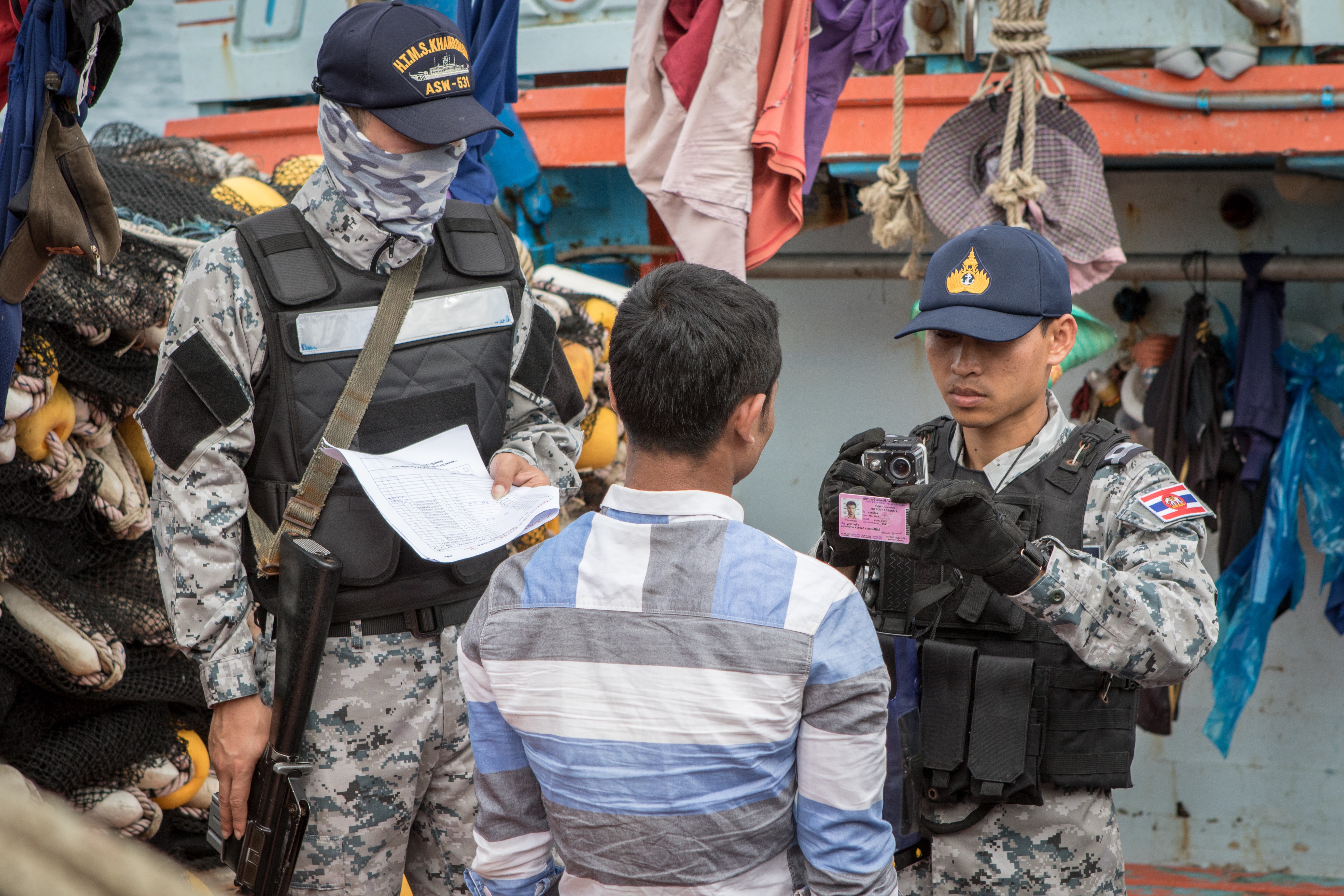
The Thai Navy, the police and other authorities inspect [the workers], who all have ID cards, without asking how they arrived there. Simply by possessing and ID card, they are cleared. But the truth is tat many who were trafficked by the brokers are still at sea.
Confidential informant
International political pressure on Thailand is intensifying on both sides of the Atlantic while consumers in market countries are waking up to the reality of how the abuses occurring within Thailand’s fishing industry relate to their own purchasing power. Now more than ever the Thai Government and producers, buyers and retailers of seafood must heed the global call for change and undertake urgent action to rid our supply chains of human misery and environmental destruction.
Overall, while some measures are now being taken to combat illegal 'pirate' fishing (notwithstanding many extremely important, fundamental issues have yet to be addressed) insufficient action has been taken by the Thai Government to address human rights abuses in the industry. A near-total failure in coordinated, nationwide enforcement responses that identify the true beneficiaries of criminal activity and prioritise the protection of victims continues to be evident. Meaningless show-casing and PR-driven exercises still guide Government policy. It is essential that the Government rapidly foster a culture of robust enforcement and compliance. Allied to this they must employ a focussed and secure, intelligence-led and forensic approach to their enforcement.
Life at sea
A 2013 International Labour Organisation survey of 596 fishers onboard Thai vessels found 25% laboured between 17 and 24 hours a day. A further 14% reported 'indefinite' hours.
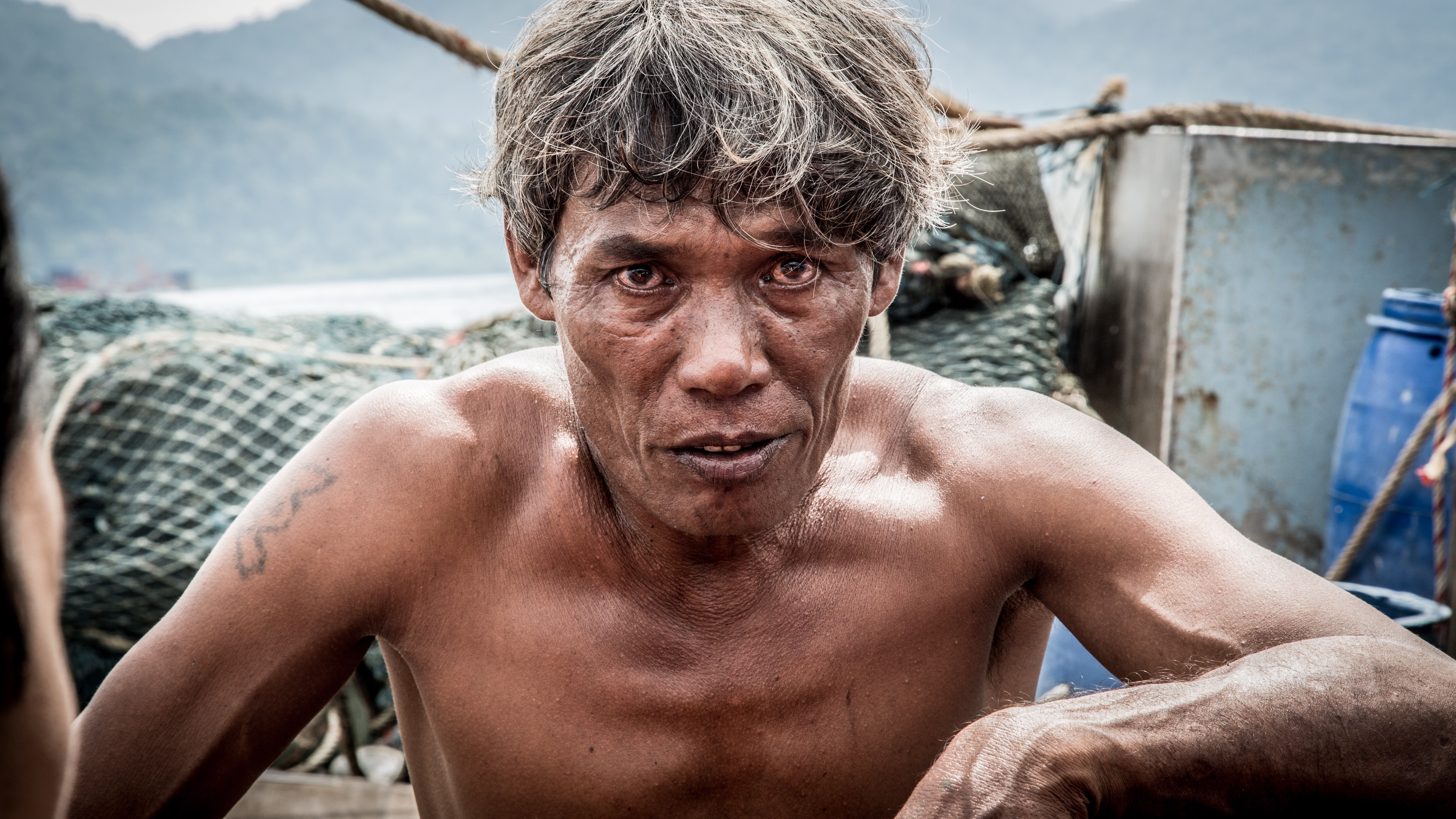
Failure by the Thai Government and industry to address, at a fundamental level, the interconnected issues of illegal, unsustainable fishing and associated human rights abuses, including the routine use of slavery and extreme violence, has led the Thai seafood sector engaged in one of the most outrageous ecological and human rights abuses of recent years. It is critical that the Thai Government demonstrates its leadership and clear intention to stamp out these abuses with extensive, high-impact and consistent enforcement operations targeting the real beneficiaries of these abuses and addressing the official corruption that surrounds this industry.
